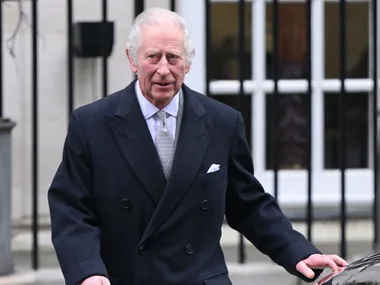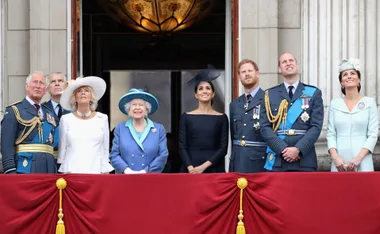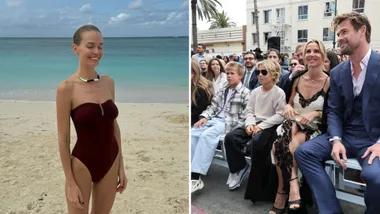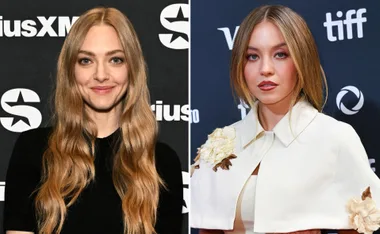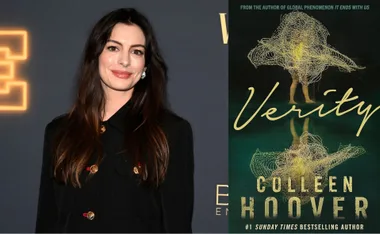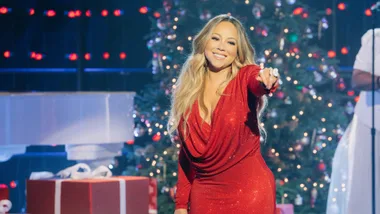Here is the full transcript of our interview with Jeana Vithoulas, author of the September Great Read, Love Begins with an A.
**Q You’ve done a lot of jobs, worked as a union official, an interpreter, university tutor – were you always going to be a writer?
A** Yes, I was always going to write and was always trying to get around to it, but it took me a long time.
The union movement is a great environment and exciting and interesting, but it does take up all your time. I used to think about writing a lot, but I didn’t have the time. Then it came to the point where I had to think about whether I wanted to write seriously, or have a career in the labour movement. And I decided I was going to be a writer.
**Q. What unions did you work with?
A.** The Builders Labour Federation in WA, the Electrical Trades in Victoria and the Liquor Hotel and Miscellaneous Union, as an organiser and campaign worker in that order for seven years.
**Q. What led you to unionism?
A.** I always believed in spending my life doing something to improve the lot of people who have less chances or opportunities in life. I kind of shifted into the labour movement because I was outspoken and was always sticking up for people.
**Q. What in your background made you like that?
A.** My family. My mum and dad came out to Australia and worked in factories like a lot of migrants in the 1950s. Then my mother had her own business making clothes. They live in Greece now and have their own shop over there. My dad always taught us to stick up for the underdog.
**Q. You set the book on the Greek island of Zakynthos – is it mythical or does it exist?
A.** Yes, it is real, it’s in the Ionian group of islands.
**Q. And that’s where your parents come from?
A.** Yes and they’ve gone back to live there.
The second largest number of Australians living overseas are in Greece. Greeks do this more than Italians. There’s lots of reasons why this happens. It’s much easier to go back to Greece and live in many ways – people who’ve left Italy to come to Australia say, ‘what have we got to back to?’ But Greece has done very well. For instance, my mother has gone back and is running a shop there, making clothes. The same is true of Ireland, because that’s done so well economically, many Irish people have gone back there to live. The most important thing is of course is that you are able to speak the language.
**Q. What business did your parents run in Australia?
A.** Milk bar, butcher’s shop and a travel agency.
**Q. What does your father do in Greece?
A.** He’s retired, Mum’s a bit of a workaholic. It’s really my sister’s shop, she runs it, but Mum helps her.
**Q. Where were you raised in Melbourne?
A.** In Flemington and Essendon.
**Q. How many children in the family?
A.** Four girls. Everyone says they can see where I got a lot of my material for the book, but the truth is I also have 25 first cousins – only five of them are men. A lot of the stuff in the book comes from my cousins, who are like sisters anyway.
**Q. When did you start writing?
A.** Back in primary school. I used to write stories and send them into competitions. I had a short story published in an anthology in 1994. In 1998, I decided I was going to write this book. That’s how it all started. So I got creative and had a baby. But with all the interruptions I still persisted – I suppose overall it took me about three to four years to write Love Begins With An A.
**Q. How did you get published?
A.** I was a bit naïve. At first I sent the whole thing to publishers and agents, and then somebody said just send the first 50 pages – they were sent back with comments that they didn’t feel it was ready. But by then I had done another draft and sent the first 50 pages to Penguin. Everything was drawn out after that – it went through different stages before eventually it was accepted. Obviously, I was excited when they finally offered me a contract, but it didn’t all happen at once.
**Q. What did you set out to write about with your book Love Begins With An A?
A.** I was in my late 20s and 30s, and single and so were a lot of my friends. There were all these stories in the papers about these women who didn’t want to get married. That wasn’t true of me or any of the friends I knew. In these stories women just wanted careers and didn’t care about meeting a man. They were happy go to the gym and wanted this lifestyle thing. I didn’t know who they were talking about. The women I knew who got to this age really wanted to meet somebody and think about a serious relationship. In fact, we would talk about the ridiculous lengths to which we’d go, the things we would put up with in order to have a relationship. I thought I’d like to write a book about this, from the perspective and the lengths that some women go to for love.
I know two young women at the moment who have moved overseas to be with men they met while they were on an earlier trip. That’s a really big decision to make. One particular girl I know, she thinks if she doesn’t give it a go, she’ll be kicking herself that she didn’t go and find out. I know a lot of girls who go overseas for love.
The other thing, too, is that a lot of the action in the novel was based on a trip I took to Greece in 1992. So it was that backdrop that inspired me to write it. Greece is so full of life, everything always happens there – it’s exciting and chaotic, a great place to inspire you.
**Q. How old are you and are you married?
A.** I’m 40, married to a guy who’s wonderful. We have a three-year-old-son.
**Q. What does your husband do for a living?
A.** He’s a union official.
**Q. How old is your son and what is his name?
A.** Alessandro and he’s three years old.
**Q. What other job do you do outside of writing?
A.** I work for the public service in the environmental area.
**Q. Who are the two people you’ve dedicated your book to?
A.** My grandmothers. At different times they brought me up. They loved stories and they were great story-tellers. They gave me a love of stories. My mum’s mother couldn’t read and write, but there was this oral tradition. They used to act out all the parts.
**Q. I loved the grandmother in your book.
A.** Yes, there are a lot of stereotypes about migrant women – both my grandmothers were very dynamic women.
**Q. Where were you educated?
A.** Lowther Hall, an Anglican school, and then at Melbourne University, where I did an Arts Honours degree.
**Q. How did you go from there to working in unions?
A.** I had no idea what job I wanted at the end of uni. I only knew I didn’t want to teach. When I finished my degree, I was working as an interpreter and that put me into all sorts of situations, dealing with legal issues and union issues. That’s how I came into contact with unions and union officials. I started off as a recruiter and I did a good job, I recruited 200 people in three months. I did that for a year.
**Q. You also work as a lecturer at the moment. What in?
A.** Modern Greek.
**Q. How do you find the time to write with a toddler and all the other work you do?
A.** Usually I get up in the morning and write, around 5am. And I write on the weekends. I don’t have any other time.
**Q. Who read your manuscript first?
A.** Christos Tsiolkas, who wrote Head-on. He is much more gifted than me. His writing is very challenging. We’ve known each other since university and we meet regularly and talk about our work. He’s the only one who’s read the whole thing. Writing is a very solitary thing, you spend many hours at the computer trying to motivate yourself. One of the things I found helpful was having Chris. I’d knew I’d be meeting him and had to have something done to share with him.
**Q. Where do you do most of your writing?
A.** I have a home office in a room that looks onto the back garden. I also use a lap-top, sometimes in the lounge-room.
**Q. How long have you been married?
A.** Four years.
**Q. Where do you live?
A.** North of Melbourne.
**Q. I was interested to see that a part of your book homes in on the deep suspicion and hostility with which many locals treat the new migrants flooding into Greece looking for work?
A.** Yes, there are hordes of Eastern Europeans going looking for jobs and it’s an issue. It’s ironic that my parents left Greece looking for work and opportunity in Australia, and now it’s the place where others go looking for the same thing.
**Q. I liked your book because of all the layers in it?
A.** Thanks. It’s a love story with lots of other things in it – politics and adventures.
**Q. I thought the arguments between the sisters in Love begins With An A, were very life-like.
A.** Yes, that was one of the other things this book was about – the order you come in the family. And what it’s like to be the first child. Always worrying about the others, as well as competing with them. Your parents always end up relying on you. A friend of mine’s parents are living in Greece. They still ring her and ask her what such and such is about or what this form or letter means? The first child takes on that parental role with her siblings. Even if her life is a mess, she’s still expected to be able to sort everything out.
**Q. Do you intend to write more books?
A.** Yes! I’d love to keep writing. I hope this book does well and that I can get another published.
**Q. If I said Jeana love … how would you finish it?
A.** Eating, cooking, reading, listening to music.
**Q. Favourite authors?
A.** Jeannette Winterson, E.L. Doctorow, Xavier Herbert, Hanif Kureishi, the Brontes, Colm Toibin.
**Q. If you live in Melbourne, I assume you follow an AFL team?
A.** Collingwood.
**Q. If I said Jeana believes … how would you finish it?
A.** That when it comes to inequity, it’s up to all of us to redress it. That is at the core of what I believe. And that families need more support.


